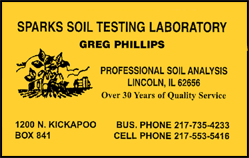| |||||||||||
| |||||||||||
Xerox has spent millions taking out ads aimed at educating so-called "influencers" like lawyers, journalists and entertainers about its brand name. A 2003 ad said: "When you use
'Xerox' the way you use 'aspirin,' we get a headache." More recently, a 2007 ad read: "If you use "Xerox" the way you use "zipper," our trademark could be left wide open." While people still use "Xerox" generically -- the Merriam-Webster dictionary lists the word as both a lower-case verb with the definition "to copy on a xerographic copier" and a trademarked noun -- the brand says its campaign has been a success. Xerox is still popular: It's ranked the 57th most valuable global brand, worth $6.4 billion, according to brand consultancy Interbrand. And perhaps most importantly, Xerox hasn't lost its trademark. TAKING IT IN STRIDE Sometimes companies embrace when their brands become common nouns. Perhaps the best example of this is Google, a company created in 1998 when Alta Vista and Yahoo.com were the top online search engines. Google, which created a formula that returned more accurate results than its competitors, became so popular that people began saying "Google" to refer to a Web search, in general. Experts say Google has benefited from its name becoming a part of the lexicon. "You don't say 'Why don't I Google it' and go to Yahoo or Bing," says Jessica Litman, professor of copyright law at the University of Michigan Law School, referring to other search engines. Apple also has gotten a boost from its brand names becoming synonymous with products. The iPod, which was the first digital music player when it came out in 2001, is still the name people use for "digital music player" or "MP3 player." And it appears Apple's iPad is headed down the same path. For consumers like Mary Schmidt, 58, the "iPad" is generic for "tablet." Schmidt, a Baltimore marketing executive, owns an iPad and doesn't know the names of any other tablets. "When I think of tablets, I think of an iPad," she says. "I think it's going to be the generic name. They were first." It remains to be seen if the iPad will maintain its name domination in the tablet market. Apple declined to comment for this article. For now, Apple Inc. has a majority of the tablet category, which includes Amazon's Kindle Fire and Samsung Electronics Co.'s Galaxy Tablet. The iPad accounted for about 73 percent of the estimated 63.6 million tablets sold globally last year, according to research firm Gartner. Apple's market share is likely to decline as more rivals roll out tablets. But experts say that won't necessarily diminish iPad's name recognition. "Apple is actually pretty good at this," says Litman, the law school professor. "It's able to skate pretty close to the generics line while making it very clear the name is a trademark of the Apple version of this general category." When the iPad debuted in 2010, some people offered "Apple Tablet" or the "iTab"
as better names. Others even suggested that the name sounded more like a
feminine hygiene product than a tablet: "Get ready for Maxi pad jokes and
lots of 'em!" wrote tech site Gizmo at the time. Two years later, those complaints are all but forgotten. "At the end of the day, the product was so successful that even if it wasn't the
'quote unquote' best name, it made the name synonymous with the category," says Allen Adamson, managing director at branding firm Landor.
[Associated
Press;
Copyright 2012 The Associated
Press. All rights reserved. This material may not be published,
broadcast, rewritten or redistributed.


News | Sports | Business | Rural Review | Teaching & Learning | Home and Family | Tourism | Obituaries
Community |
Perspectives
|
Law & Courts |
Leisure Time
|
Spiritual Life |
Health & Fitness |
Teen Scene
Calendar
|
Letters to the Editor